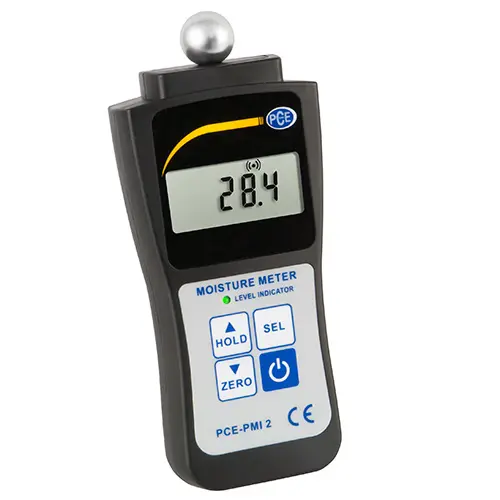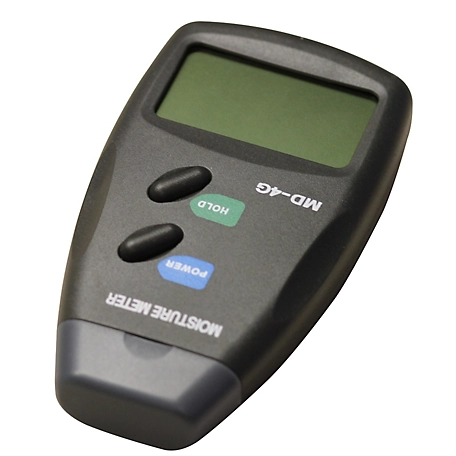Moisture Meter Purchasing Guide: What to Try to find in High-Quality Instruments
Moisture Meter Purchasing Guide: What to Try to find in High-Quality Instruments
Blog Article
The Ultimate Guide to Moisture Meters: A Comprehensive Overview and Just How They Can Conserve You Money
Wetness meters offer as important devices in spotting and keeping an eye on moisture material in products, aiding in stopping costly damages and making sure the top quality of products. Understanding the nuances of various kinds of dampness meters, their applications, and the potential cost-saving benefits they use can be a game-changer for professionals and companies alike.
Sorts Of Dampness Meters
One typical type is the pin-type wetness meter, which determines the electrical resistance between 2 pins put right into a product. Pinless wetness meters, on the other hand, use electromagnetic sensing unit plates to check a bigger area without triggering damage to the product's surface area.

Infrared dampness meters measure the thermal buildings of a material to identify its dampness content non-invasively, making them valuable for applications where pin or pinless meters may not be appropriate. Recognizing the different types of dampness meters available can assist markets choose the most suitable device for their specific wetness dimension demands.

Advantages of Utilizing Moisture Meters
Moisture meters offer important advantages in accurately keeping track of and examining dampness degrees in varied products and environments. One of the primary advantages of using dampness meters is the avoidance of potential damage caused by excess moisture.
Moreover, using wetness meters can lead to raised energy performance. In farming setups, moisture meters play a critical role in maximizing crop yields by making it possible for farmers to check dirt moisture levels and make educated irrigation decisions.
Exactly How to Pick the Right Wetness Meter
When choosing a dampness meter, it's crucial to make sure that the meter is appropriate for the certain product you will certainly be testing. Different products have varying electric homes that can affect dampness readings, so selecting a meter made for your material is crucial for exact outcomes. By thoroughly reviewing these aspects, you can choose a moisture meter that satisfies your needs and gives precise moisture dimensions for your projects.
Correct Techniques for Dampness Meter Usage

Cost Savings Via Dampness Meter Applications
Exactly how can the tactical usage of wetness meters lead to considerable price financial savings throughout different industries? In the farming industry, dampness meters aid in establishing the ideal time for harvesting plants, preventing excess or over-drying moisture that can influence the final item's quality.
Likewise, in construction, wetness meters aid avoid pricey damages by spotting dampness levels in building products, such as wood or concrete, which can cause architectural issues otherwise addressed immediately. By identifying issue locations at an early stage, service providers can take corrective actions to avoid considerable repair services or replacements, eventually conserving money and time.
In addition, in the food processing market, dampness meters are important for monitoring product top quality and ensuring conformity with safety policies. By accurately measuring moisture material in food items, suppliers can prevent putridity, preserve quality, and lower waste, click here now causing substantial cost savings. Overall, the tactical application of wetness meters is a useful financial investment that can bring about substantial cost reductions and improved efficiency across various markets.
Final Thought
To conclude, wetness meters are useful devices for identifying and gauging dampness degrees in different materials. By utilizing the best moisture meter and following correct strategies, individuals can efficiently avoid costly damages brought on by excess wetness. Buying a quality dampness meter can bring about considerable expense savings over time by determining potential concerns beforehand and making it possible for punctual remediation. Eventually, moisture meters are essential instruments for keeping the stability and durability of materials and structures.
Dampness meters serve as indispensable devices in detecting and checking moisture content in products, aiding in stopping pricey damages and making sure the quality of products. Infrared wetness meters gauge the thermal residential properties of a material to identify its wetness web content non-invasively, making them helpful for applications where pin or pinless imp source meters may not be ideal.Moisture meters provide vital benefits in accurately evaluating and checking dampness levels in varied products and environments. In agricultural settings, wetness meters play a critical role in optimizing crop yields by allowing farmers to check dirt moisture levels and make informed irrigation decisions.In conclusion, moisture meters are useful devices for gauging and detecting moisture levels in various materials.
Report this page